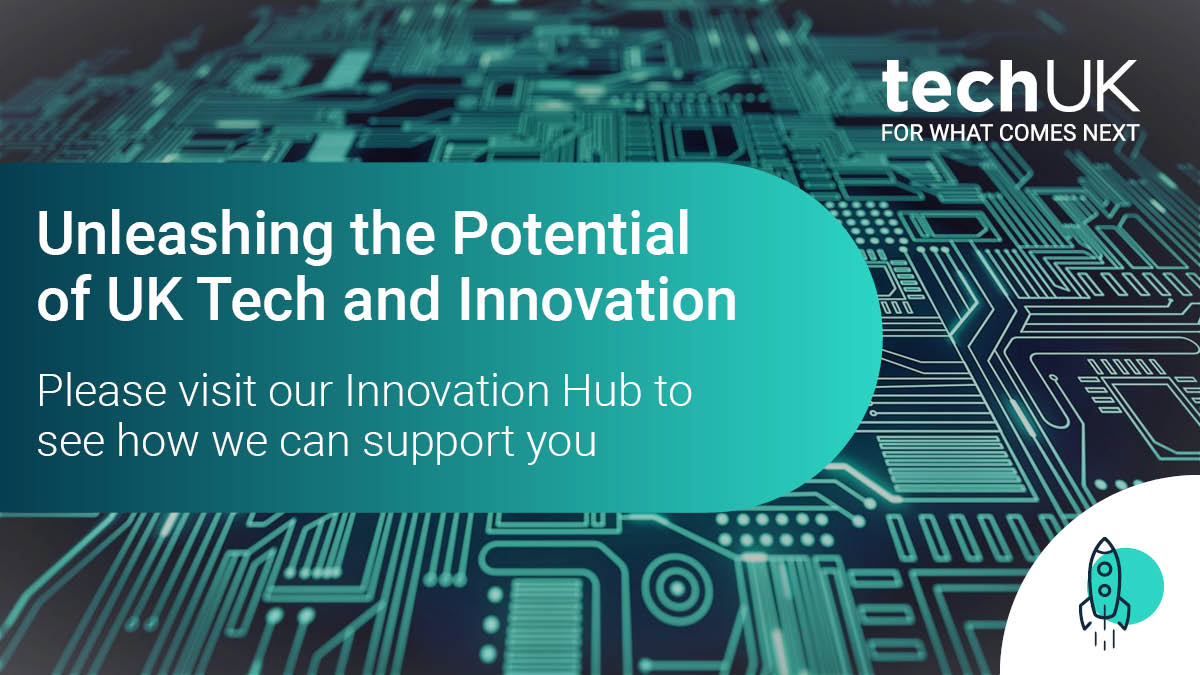What to consider when scaling AI in the public sector – Part 2
In March 2024, the National Audit Office (NAO) reported that 70% of surveyed government bodies are either piloting or planning the use of AI, with applications ranging from supporting operational decision-making to enhancing internal processes.
In the second instalment of our exploration into AI implementation in the public sector, we delve deeper into key factors essential for scaling AI. Here we’ll cover the last three foundational capabilities: Delivery Model, Talent, and Adoption & Scaling and their associated guardrails.
You can find the first part of the blog here: What to consider when scaling AI in the public sector (techuk.org)
Let’s start by looking at the Delivery Model.
Unlike traditional projects, AI solutions often necessitate a flexible and experimental approach, making them akin to Research and Development (R&D), demanding flexibility and experimentation. Old-school delivery models don’t work because they don’t require a re-design as often as AI solution delivery currently does.
The essence of AI lies in its adaptability and the ability to pivot swiftly in response to evolving requirements. Locking yourself into one rigid delivery model can create significant challenges down the road.
Agile methodologies, characterised by their iterative and time-boxed approach, emerge as the preferred approach in this scenario. According to Forbes, these methodologies facilitate rapid experimentation: it's all about testing, gathering feedback, and delivering value continuously.
A fundamental consideration in the delivery model is the approach towards tooling and automation. Establishing robust Continuous Integration/Continuous Delivery (CI/CD) pipelines is important to ensure seamless deployment and management of AI artifacts throughout their lifecycle. Frameworks such as the Llama Index offer a pragmatic solution to invoke AI tools, obviating the need to reinvent the wheel. By leveraging existing frameworks, organisations can accelerate development cycles and mitigate the risk of vendor lock-in.
However, with innovation comes inherent risks, so how do you protect against these risks? Strategies such as progressive release of capabilities and meticulous monitoring; A/B testing, model monitoring, and human-in-the-loop mechanisms emerge as indispensable safeguards against unforeseen anomalies and biases.
During the build phase, leveraging tools like tools like DeepEval can be a valuable lifeline They help assess model relevancy and spot aberrations like hallucinations and biases.
Now, let’s move onto Talent.
The National Audit Office highlighted that 7 out of 10 government bodies cite skills as a significant barrier to AI adoption. Addressing this challenge requires comprehensive training across all roles. But here's the harsh truth: there's a dire scarcity of AI talent. With roles like those at Netflix commanding salaries up to $900,000 annually, public sector budgets simply can't keep pace. So, rather than chasing unicorns, organisations are doubling down on upskilling existing teams to optimise off-the-shelf AI solutions. It's a pragmatic pivot given the constrained resources at hand.
At Credera, we have developed tailored training pathways catering to both technical and non-technical staff. For technical roles such as cloud engineers, dedicated programs focus on AWS, Azure, or GCP, with a stringent training target set at 95% for the organisation. Non-technical staff undergo a combination of broad skill development, familiarisation with AI terminology, and interactive learning challenges to level up their game.
Aligning the AI journey with the interests and responsibilities of different departments is crucial. Think Legal, HR and Marketing. Plus, don't forget to prioritise training for new hires and graduates, as they have the most risk of losing early experience because of the introduction of AI.
Measuring the AI team's proficiency goes beyond technical skills. It's about ensuring they understand compliance, risk mitigation, safeguarding sensitive data, navigating intellectual property considerations, and mitigating biases in models.
Finally, let’s address Adoption & Scaling.
According to Harvard Business Review, over 70% of large companies are still grappling with integrating AI effectively. As organisations scale their AI initiatives, the pressure to deliver value regularly intensifies. With expansion comes the need for consistent and tangible outcomes to justify the investment in AI technology.
Getting everyone on board is key. Think broad adoption across departments. Transparency is crucial too, helping stakeholders differentiate successful initiatives from those needing a reboot.
At Credera, we love celebrating wins. From training uptake to revenue bumps, our success metrics cover it all. But it's not just about shouting from the rooftops. Success stories need to reach every part of the organisation. And who better to lead the charge than the executives themselves?
Central to fostering widespread participation is embracing the experimental nature of AI integration and cultivating a culture where failure is viewed as a stepping stone to innovation. Moreover, recognising and measuring usage across the organisation not only justifies investment but also fosters accountability and ownership. By making AI utilisation visible and quantifiable, organisations can garner support and enthusiasm for further integration initiatives.
Just as in any technological evolution, success hinges not only on the sophistication of the tools but on the commitment and adaptability of the individuals and organisations wielding them. With a steadfast commitment to innovation and collaboration, the public sector can harness the transformative power of AI to drive efficiency, equity, and excellence in service delivery, thereby ushering in a new era of public sector innovation and advancement.
View all campaign week content

techUK – Unleashing UK Tech and Innovation
The UK is home to emerging technologies that have the power to revolutionise entire industries. From quantum to semiconductors; from gaming to the New Space Economy, they all have the unique opportunity to help prepare for what comes next.
techUK members lead the development of these technologies. Together we are working with Government and other stakeholders to address tech innovation priorities and build an innovation ecosystem that will benefit people, society, economy and the planet - and unleash the UK as a global leader in tech and innovation.
For more information, or to get in touch, please visit our Innovation Hub and click ‘contact us’.
Upcoming events
Latest news and insights
Other forms of content
Sprint Campaigns
techUK's sprint campaigns explore how emerging and transformative technologies are developed, applied and commercialised across the UK's innovation ecosystem.
Activity includes workshops, roundtables, panel discussions, networking sessions, Summits, and flagship reports (setting out recommendations for Government and industry).
Each campaign runs for 4-6 months and features regular collaborations with programmes across techUK.
techUK's latest sprint campaign is on Robotics & Automation technologies. Find out how to get involved by clicking here.
Running from September to December 2023, this sprint campaign explored how the UK can lead on the development, application and commercialisation of space technologies, bring more non-space companies into the sector, and ultimately realise the benefits of the New Space Economy.
These technologies include AI, quantum, lasers, robotics & automation, advanced propulsion and materials, and semiconductors.
Activity has taken the form of roundtables, panel discussions, networking sessions, Summits, thought leadership pieces, policy recommendations, and a report. The report, containing member case studies and policy recommendations, was launched in March 2024 at Satellite Applications Catapult's Harwell campus.
Get in touch below to find out more about techUK's ongoing work in this area.
Event round-ups
Report
Insights
Get in touch
Running from January to May 2024, this sprint campaign explored how the UK can lead on the development, application and commercialisation of the technologies set to underpin the Gaming & Esports sector of the future.
These include AI, augmented / virtual / mixed / extended reality, haptics, cloud & edge computing, semiconductors, and advanced connectivity (5/6G).
Activity took the form of roundtables, panel discussions, networking sessions, Summits, and thought leadership pieces. A report featuring member case studies and policy recommendations was launched at The National Videogame Museum in November 2024.
Get in touch below to find out more about techUK's future plans in this space.
Report
Event round-ups
Insights
Get in touch
Running from July to December 2024, this sprint campaign explored how the UK can lead on the development, application and commercialisation of web3 and immersive technologies.
These include blockchain, smart contracts, digital assets, augmented / virtual / mixed / extended reality, spatial computing, haptics and holograms.
Activity took the form of roundtables, workshops, panel discussions, networking sessions, tech demos, Summits, thought leadership pieces, policy recommendations, and a report (to be launched in 2025).
Get in touch below to find out more about techUK's future plans in this space.
Event round-ups
Insights
Get in touch
Running from February to June 2025, this sprint campaign is exploring how the UK can lead on the development, application and commercialisation of robotic & automation technologies.
These include autonomous vehicles, drones, humanoids, and applications across industry & manufacturing, defence, transport & mobility, logistics, and more.
Activity is taking the form of roundtables, workshops, panel discussions, networking sessions, tech demos, Summits, thought leadership pieces, policy recommendations, and a report (to be launched in Q4 2025).
Get in touch below to get involved or find out more about techUK's future plans in this space.
Upcoming events
Insights
Event round-ups
Get in touch
Campaign Weeks
Our annual Campaign Weeks enable techUK members to explore how the UK can lead on the development and application of emerging and transformative technologies.
Members do this by contributing blogs or vlogs, speaking at events, and highlighting examples of best practice within the UK's tech sector.
Summits
Tech and Innovation Summit 2025
Tech and Innovation Summit 2023
Tech and Innovation Summit 2024
Receive our Tech and Innovation insights
Tech and Innovation updates
Sign-up to get the latest updates and opportunities across Technology and Innovation.


































































